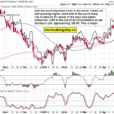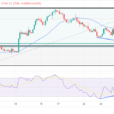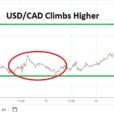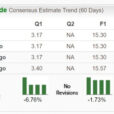A competitive advantage gives a company an edge over its rivals and an ability to generate greater value for the firm and its shareholders. The more sustainable the competitive advantage, the longer the business in question will be able to produce outsized returns for shareholders. Warren Buffett was one of the first to recognize the benefits of a competitive advantage, or what he calls an “ gives a company an edge”, which is defined by Investopedia as
“…a business’ ability to maintain competitive advantages over its competitors in order to protect its long-term profits and market share from competing firms.”
But nature of competitive advantage is changing. Technology is breaking down barriers to entry, the abundance of natural resources is reducing the costs for producers of all sizes, and digital, not physical scale is now the goal for companies seeking a size advantage over peers.
The changing nature of competitive advantage is one of Goldman Sachs’ current investment themes. The bank’s analysts outlined the key risks and themes of the changing competitive environment in their “Fortnightly Thoughts” research booklet, which celebrated its fifth year of publication last week.
The effect of abundance on competitive advantage
In the new world, abundance is changing the nature of competitive advantage at the country level. Emerging countries that used to have an advantage bestowed by being a resource exporter have seen the advantage reduced. Similarly, the advantage of low-cost labor has diminished, owing to the increasing supply shock of automation and artificial intelligence.
As Goldman goes on to point out, as the access to resources becomes less of a competitive advantage, then the country-level competitive advantage will revolve around the ability to generate and monetize intellectual property, the ability to attract skilled labour and the strength of the legal system, as well as support system for small businesses to allow innovation to prosper. Out go countries like Brazil, South Africa, India and Canada, to be replaced by the US, with the Nordics not far behind. However, one country that leads the pack is China, which has strong linkages between government, academia, the military and the private sector.













Leave A Comment